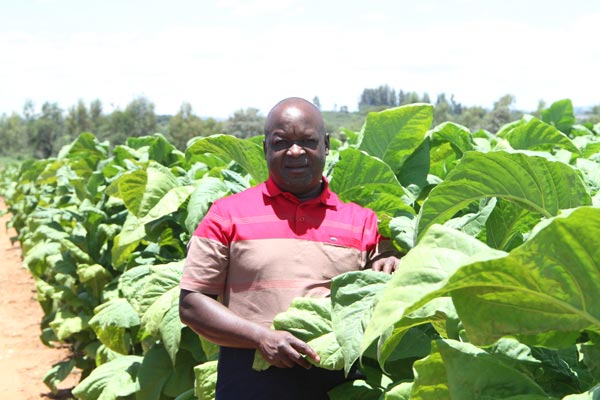

BY BLESSED MHLANGA
Top Headlands tobacco farmer Denford Mutwiwa is expecting yet another bumper harvest this year, but he is a worried man.
After investing foreign currency to produce the best crop, Mutwiwa, like the rest of tobacco farmers in Zimbabwe, will get half of his earnings in the newly unveiled real-time gross settlement (RTGS) dollars.
After floating the US dollar exchange rate against the RTGS dollar, Reserve Bank of Zimbabwe (RBZ) governor John Mangudya indicated that tobacco farmers would be allowed to retain 30% of their earnings in foreign currency before raising it 50% after farmers complained.
“Selling in RTGS dollars will mean huge losses for us,” said Mutwiwa.
“In fact, we will never be able to recover from those losses as farmers.
“We have already made losses going into this year’s marketing season.
“We know tobacco is a foreign currency earner, but the current set-up means that the owners of the crop will toil for RTGS revenues while merchants get foreign currency.”
- Chamisa under fire over US$120K donation
- Mavhunga puts DeMbare into Chibuku quarterfinals
- Pension funds bet on Cabora Bassa oilfields
- Councils defy govt fire tender directive
Keep Reading
The proud owner of the 169-hectare Teryden Farm, Mutwiwa has sunk thousands of dollars into modernising his farming activities and has established himself as one of the leading tobacco farmers in Manicaland.
“This investment in pipes, pumping generators and centre pivots was made in United States dollars,” he said.
“I bought this equipment from South Africa, and I am glad to say that it’s all paid for in full.”
Mutwiwa has installed 12 centre pivots, the shortest covering 260 metres, and puts his investment on the equipment alone at $426 000.
He estimates that he would spend $18 000 per hectare on this season’s tobacco crop, buying chemicals, paying for electricity and labour costs.
“The cost before the price madness of last year was around $8 000 per hectare, but it has since jumped to around $18 000 before we include the cost of grading and transportation of the leaf to the auction floors,” he said.
In his inventory, Mutwita has trucks, 15 tractors and motor bikes that consume an average of 600 litres of diesel daily, which means that the costs soared after last month’s steep fuel price increases.
Growing tobacco is labour-intensive, getting the best grade needs clinical precision from the seed bed to planting, agronomy, grading and eventually transporting the produce to the auction floors in Harare.
“You have to be at the farm 24/7 so that you get everything right from applying the fertiliser to chemicals,” he said.
“Tobacco is a 12-month crop, from May to the next May when you go to the auction floors.”
Mutwiwa expects to harvest an average of 3,5 tonnes of the golden leaf per hectare.
He is the second biggest tobacco farmer in Manicaland and his vision is to increase the land under tobacco to over 600 hectares if the RBZ allows tobacco farmers to sell their crop entirely in foreign currency.
Mutwiwa remembers the period 2009 to 2012 with nostalgia as he regards it as the best period in his farming career characterised by open market prices where farmers pocketed all their earnings in foreign currency.
Using his earnings from the golden leaf, he managed to take his children through top schools and sent two of them to top universities in the United States of America.
An unassuming businessman, Mutwiwa made a full transition from selling stationery, to being a leader in growing one of Zimbabwe’s leading foreign currency earners — tobacco.
Today he employs 473 full-time workers and also has 170 hectares of land under a maize crop and 12 hectares under sugar beans.











